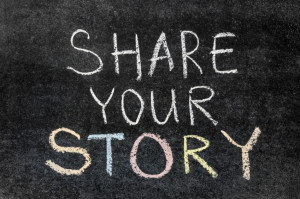 Have you ever stepped outside of your professional comfort zone by attending a new conference or event?
Between April 15 and 18, 2015, I tried something new: I attended my first annual meeting of the National Council on Public History. The meeting took place in Nashville, Tennessee.
Have you ever stepped outside of your professional comfort zone by attending a new conference or event?
Between April 15 and 18, 2015, I tried something new: I attended my first annual meeting of the National Council on Public History. The meeting took place in Nashville, Tennessee.
In this post, you will discover what makes the NCPH annual meeting similar to and yet different from traditional academic history conferences and how the conference demonstrates public history as a specialty.
Overview of History on the Edge, NCPH 2015
The 2015 NCPH annual meeting met to “consider the edges of what we do and who we are” as public historians.
Panels explored the future of public history, how the field can collaborate with other disciplines and interact with new audiences, and how public historians can contribute to “the cutting edge questions of our societies."
(2015 NCPH Annual Meeting Program)
Exploring New-to-Me Professional Territory
 I chose to attend NCPH instead of OAH because as a hybrid historian, I live with one foot in academic history and one foot in public history, and yet I had never attended a public history conference.
I chose to attend NCPH instead of OAH because as a hybrid historian, I live with one foot in academic history and one foot in public history, and yet I had never attended a public history conference.
In 2014, I watched as my Twitter stream filled with interesting tweets about NCPH sessions and about how much fun my colleagues were having at the conference, so I made a commitment to attend my first NCPH annual meeting in 2015.
Over the course of the 3-day conference, I could not help but compare my NCPH experience with my participation in numerous AHA, OAH, SHEAR, and OIEAHC conferences. My mind made three important observations about the differences between these experiences and about the historical profession.
1. Public History is a Specialty
The NCPH defines public history as “the many and diverse ways in which history is put to work in the world.” Some know public history as “applied history” as the profession seeks to apply history to real world issues.
By those definitions, I qualify as a public historian.
I claim to be part public historian because I spend a good portion of my time trying to help non-historians form a meaningful connection with history. I perform this work by writing articles, podcasting, tweeting, and leading occasional tours of revolutionary Boston.
Although I qualify as a public historian professionally, I felt a bit out of my element at NCPH.
 As I attended panels and conversed with colleagues, I came to understand that professionally-trained public historians have specialized skills that many university or research-driven historians overlook.
As I attended panels and conversed with colleagues, I came to understand that professionally-trained public historians have specialized skills that many university or research-driven historians overlook.
Public historians often work with and produce a different type of scholarship from those of us who trained as academics. They study, create, and apply theories of historical interpretation when they consider how to create exhibits and convey information to the public.
Sessions on project management and how to include and interpret women at historic sites offered a glimpse of how public historians create exhibits and interpretive programs. This process involves more than just determining what historical facts to include or omit. It involves a careful consideration of audience, perspective, organization mission statements, funding, exhibit space, and the consideration and application of theories for how to convey information to visitors through print, visuals, and tech devices.
Anyone who thinks that public history makes a great “Plan B” for graduate students who train as academic historians should attend NCPH. Once they take part in a few sessions and interact with their public history colleagues they will realize that public historians work on history, but in a different way from academics.
Public historians grapple with a different set of scholarly issues that most academic programs don’t expose their graduate students to. If academic programs want to make public history a viable “Plan B” for their graduates, then they need to collaborate with public history programs to offer training in the skillsets required by the public history profession.
2. Historians Need to Collaborate More
 Public historians face many of the same or similar problems that academic historians face: Lack of funding, inadequate institutional resources or support, and insufficient compensation for interacting with the public.
Public historians face many of the same or similar problems that academic historians face: Lack of funding, inadequate institutional resources or support, and insufficient compensation for interacting with the public.
Additionally, both academic and public historians grapple with interpretive questions that each specialty could help the other answer.
In a session about how to include and interpret women in historical sites and museum exhibits, someone raised the question about how public historians can overcome the lack of women’s voices in the historical record. Academic historians receive training in how to look at and use what the historical record does not say.
Conversely, some of the techniques that public historians use to interpret history could be of real value to academic historians.
As I mentioned in “Wanted: 21st-Century History Job,” the future of the field lies in collaboration and in the development of more hybrid historians. Together academic and public historians can cultivate wide public awareness about the past and convey history in a way that makes it as relevant to the present.
3. NCPH is a Fun and Great Conference for Networking
I won’t lie, I was nervous about attending NCPH.
Part of what I love about attending conferences is catching up with friends. I knew I would know a few attendees from Twitter, but the majority of my professional network and historian friends do not attend NCPH.
 My fears of being unwelcome or lonely disappeared within the first 15 minutes of the conference. The first person I met introduced herself and we became fast friends.
My fears of being unwelcome or lonely disappeared within the first 15 minutes of the conference. The first person I met introduced herself and we became fast friends.
Most NCPH attendees were very welcoming. They wanted to be at NCPH and they wanted to interact with and meet new people.
In fact, the public historians I met seemed more concerned with meeting me as a person rather than me as an historian. We met each other as people before we delved into professional chit-chat about where we worked and what areas of history interested us. This type of interaction happened throughout the conference.
Additionally, NCPH encourages attendees to visit the host city. They build walking and museum tours into the conference program; participating in a tour counts as attending a conference session.
I am famous for attending history conferences and never visiting the sites around me because I am so focused on the conference program. I would have done the same at NCPH, but the program encouraged me to have fun and consider history and history conversations outside of the conference hotel. Tours also allowed me to meet and meaningfully network with more people during these shared experiences.
Conclusion
NCPH is a fun conference and one that every historian should make a point to attend.
NCPH will introduce you to a welcoming group of historians and their professional work.
I plan to attend NCPH every two or three years. This periodic attendance will help me stay abreast of what my public historian colleagues are up to, what challenges they face, and where opportunities exist for collaboration between academically-trained and public historians.
 Share Your Story
Share Your Story
Have you ever attended NCPH? What was your experience like?
What is the most fun history conference you attend?